|
I suppose I should start by saying that even after a semester in this upper level undergrad. course, and 4 years of undergraduate English major courses, I still can't readily tell you answers to the question.
I think for me personally, the readings and studies of this course made me go back and think about all the courses I took in college, both in writing classes in the English department, and courses elsewhere. It made me better appreciate what I learned through undergrad., like how to actually introduce a quote properly, write my own citations (as opposed to using an *incorrect* generator), etc. But even more so, it made me better appreciate professors goals within the classroom and that in my own major I was better prepared for my future, not just upper level classes. For me, a white, working class, geeky kid at a State college, I was armed to develop a better resume, take on chances in presentations and readings on campus (something I would run from 3 years ago), and learn that the relationships I have with professors are not just within the classroom. I've had 3 or 4 professors approach me about grad. school and offer to mentor me. So while I don't have an answer about specifics, I know that people in my field care about me, a student, young professional, and beginnings of career. We have a friendship. Something, I don't think other departments always offer. I can say that I think in my experience the professors care about us as students and the future. Not just within the time span of their class, but later on too. Scholars all have their own agendas in the classroom. Maybe their deadset on this one book. Or this one lesson. Or feminist pedagogy. But the ones that are dedicated and true educators are focused on getting us all to where our potential can take us. And for that, I am extremely thankful. Words cannot describe what I was able to embrace during my final semester as an undergrad. about my department's, (and professors from others) have been able to help me do and fulfill. I feel as though, especially in later years of college, I got the most out of my experience, and I learned about all I could do with my degree. This, I think, is what scholars in the field care about. -Jenn
0 Comments
After a few months of studying the interior of composition classrooms and it’s comprised teaching strategies through the many years, our class has never come across an article that addresses the composition classroom composed of deaf students. [The ListServ asks:] “Is anyone familiar with a first-semester writing course taught for ASL-speaking students or the same course for hearing-impaired students (as a section, not simply with accommodations within a standard course)?” – Bruce Martin, Lone Star College The field of composition is going through an identity crisis, always changing and adding more to it’s discipline as we discover more and more about the development of writing. A lot of questions are asked and observed but many are left unanswered. ASL, clearly is now added as a representation of a lost identity in the field of composition. The first response Martin received was “I have never explored this question but it reminds me of great works of a writing minor.” ----I’m sorry but what kind of answer is that. As diversity in classrooms populate so won’t ASL and ESL and other disabilities that can alter the world of writing. We need more composition classes to accommodate all. Although it's not heavily explored in the field, I do not want anyone to be mistaken that it does not exist. Below is a video of an ASL class using their language at large! Watch and explore ASL! 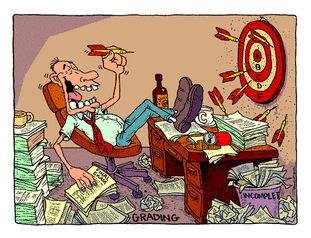 Going into the field of English education, I find that grading writing has to be oe of the most challenging aspects of a teacher's career. There are no classes that offer education majors the opportunity to learn how to grade and what we should expect from a student's performance. It is understood that each teacher has their own specific way to grade writing - whether they become known as the stickler teacher that harshly grades or the teacher that gives an A for any piece of work. I have found that I am not alone in this academic struggle. WPA ListServ scholars also worry about the grading process and how to provide excellent grading that will help students excel in their writing. I don't want to become a teacher that grades in a counterproductive manner. I want to ensure that my students receive grading that will enrich their writing, not hinder it, and find conventional ways to stay static on the way that I grade. In our writing composition senior seminar, we have discussed the importance of the authentic voice in student writing. A plethora of pedagogies aim to encourage student writing, while also aiding students to find their own voice through writing. So my question is, how do we, as teachers, provide grading that will effectively produce better writing? 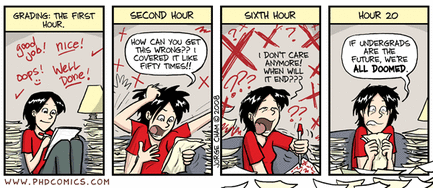 Fortunately, it seems, that professors of first year writing courses can be fluid in the way that they grade essays. Every semester is a different opportunity to correct past mistakes and create a better way to grade essays. Professor Inoue, from California State University, states, "I think, our job is to set up conditions that allow that exploration to happen, at least in the writing classroom. When WE give grades on individual writing performances, we trick many students into not asking these questions about how to value writing and how they should understand their own writing." Professor Inoue argues that professors need to focus more on creating a conversation with a student about writing to help them understand what it is that they are lacking in their writing. This approach creates an environment where students will understand their writing goals and what they need to target when writing. It also soothes the criticism that may come from grading - it provides an environment of understanding writing and it's importance. This same professor has used a grading system known as "contracts." Although I do not fully understand what a contract for grading is, I assume, from the way he writes about it, that a contract is a standard created for students in the classroom that help them find ways to aim their writing objectives in a manner that will improve their writing, while also targeting the necessities to improve their grades. Many scholars that have commented on the thread geared towards grading essays have provided their own methods when it comes to the grading process, which all prove to work well in their classrooms. In an effort to apply what I have read to my future classroom, I have concluded a couple of key components when it comes to grading: 1) always give feedback and leave time for conversation about how a student may improve their writing 2) contracts or rubrics can assist a student that is struggling with identifying how to write well and 3) grading is a process of trial-and-error; there is no perfect way to grade.
In class, we talked about the impact that technology has on our writing, and what it makes available for us to do. I think this involves your selection of apps--do you just use your phone for texting, Facebook, and email? Or do you like to use tools on it? I find the best apps for me, as a user, a writer, student, and reader, are tools: Dictionary apps, Google search bars, etc. And this app is just that! Sometimes I think we're too negative about technology in a classroom setting. That using your tablet and phone for help is only a distraction, when really it could help you out a lot...if you use the right apps, and use them often. If you check Facebook a ton, you tap the Facebook app nearly every time you unlock your screen by habit. (Or whatever you use, I've heard Facebook is now getting outdated or whatever). But if you use your tools often, like your tip calculator, dictionary, and weather app, you become accustomed to using them when you need to! This app has a lot of helpful resources on it, as shown in its demo youtube video: This reminds me of the little pocket books that no one actually puts in their pocket. Or the Strunk and White "Elements of Style" book that some of us are notorious for carrying around and studying often during our college years. You become accustomed to using these things just like you would an app. I don't travel anywhere academically without Strunk and White. Its the same thing with our apps!
You use apps useful to you. As writers, this app has proven to help in all areas of writing, being writers, reading, etc. I don't see why "dependency" on apps is frowned upon, when we're the same way about some of our trusty books. Maybe not your first year writing MLA guide, but one of your MLA guides or sites you probably use often. And a dictionary. Apps can be just as helpful, if not more helpful, in these situations when you need to check to see if you're doing the right thing in your writing, and if you need help with it. I am actually in the process of downloading this app now to give it a try. But like we talked about technology in class, I get frustrated when I hear a college with a "laptop initiative" allow professors to completely ban internet use. Or when I hear that we cannot use our tools. While some students take advantage of class time to cruise the web, some also legitimately use the time for their work and research. And the age old tale tells, you need to accept change in life, even if you don't like it. You can tell students not to use things in your class. But whether or not they use apps on their work versus paper back dictionaries and guides is up to them, since its their style they are developing. To the creator of this app, I'd welcome feedback and input. I am excited to try it! Thank you. -Jenn Unlike last time, I wasn't lurking around the Litserv for too long before I found a post that really screamed at me. The title of the post was "debate on writing assessment", and it kind of reminded me about a conversation we had as a class a day or two ago. Can we really "grade" written assignments? And with the recent change in the SATs by getting rid of the written part of the test, it kind of made sense to me that teachers and students would both begin to question whether or not we can really grade written assignments like we currently do.
Is it possible for we, as readers, to be "too subjective"? My opinion on one subject could be VERY different from yours. For example, I really couldn't give a toss about whatever happened on last week's Walking Dead. On the other hand, you could respectfully tell me to screw off because of my excitement for Game of Thrones coming back in less than a month. (I really am excited, but please don't hurt my feelings). The same can be said about writing assignments. I used to hate writing argumentative essays back in high school, because I would always think of how the teacher would grade me, based on whether or not I agreed or disagreed with his or her opinion on a subject. See how this is kind of getting into dicey territory? More than not, posters in the thread shared the same fear, just because writing assessments have become a little bit of a beast with many heads. As an aspiring writer myself, I know just how subjective folks can be when it comes to reading. I just can't wrap my head around the idea of grading someone on a standardized test like the SATs or GREs (which I experienced a month or two ago) and didn't really appreciate being put on the spot for an hour, looking at a prompt for the first time and being expected to write about the topic right out of the gates. I know for a fact that I didn't produce the best writing I could've done, if I was given a heads up on what I would be writing about. Posted on March 9, 2014 was a post on the listserv called "Composing on a Cell Phone," which opened the doors for many to discuss what this means for their students' compositions, and a potential new medium of writing--or not.
This also opens a door about technology in the classroom. One person wrote: "So often, technology is touted as the promise and answer to everything.We are told that technology makes everything easier, simpler, and more accessible. But when we consider technology and Basic Writing, is that true? Does technology provide open access for our students to achieve their educational goals, moving from developmental writing courses through graduation? What is the impact of technology on basic writing classrooms today? What are the political consequences of eschewing digital pedagogies? Of adopting them? Who controls these technologies? What are the implications of who creates and controls them? What does responsible basic writing pedagogy look like in a digital age? This pre-conference workshop will work to explore the possibilities, realities, and restrictions of technology and basic writing pedagogies." Which brings me back to Denis' and my presentation on basic writing. Not everyone has access to the same technology. While we may carry around laptops, that doesn't mean they all function the same. Also some students still use "dumb phones," and cannot access the internet or documents in the same way others do. There is also a question for me about technology literacy. What about students who don't know about some good apps to keep documents on like Evernote? What about those who are not as advanced online as others, or those who don't utilize sites as much as others. An example would be this blog: The people in this class with experience on Weebly already knew how to do everything, drag and drop 'elements' etc. But most had to learn, and that could have been potential struggle for some. Back to cell phones, how well can some people really compose on there? And at what medium? Do they have an office app? Are they emailing something to themselves? Or are they using basic notepad? And in what way do professors get to see it? To me, it seems like professors and educators do not like cell phone written pieces. Mostly because its hard to use Spell Check and actually type more than 3 words on the screen. But outside of the education world, we see so many people using phones. An example would be Program Committee's Open Mic nights. Poets keep their poetry in different formats so they can access them on any device. Even my phone. They recite from a phone or tablet in front of them. Sometimes a laptop if they can juggle that with the mic. But you see them scroll, and eventually they look up and finish without needing their device. I suppose it depends on the medium and the writer's favored way of writing. You couldn't suppress a poet sitting on a subway with the only thing to write on is a phone. Or someone who stores their pieces everywhere for optimal pick up. Its an art. While basic writing, essay writing, and classroom writing may not be optimal on a cell phone, it may be something people like to do because its all they have on them constantly. Very rarely do you see someone with notepads now. Its one of those things that have a time and a place. As I looked through the posts on listserv this week, there wasn’t much that interested me until a post about the amount of time teachers should spend commenting on their students papers. The woman who posted felt that throughout her teaching career, she has been taking too much time commenting on her student’s papers. Her post triggered a significant amount of replies as it is definitely a hot topic for all teachers dealing with grading papers. I enjoyed the posts suggesting that she should start doing audio comments and give those to her teachers. I couldn’t help but laugh at this suggestion as I couldn’t really picture myself listening to my teacher’s audio recordings every time I got a paper back. I also really couldn’t see the majority of my teacher’s setting up an audio system that would record them talking about their students papers. Some of my professors can hardly figure out how to work their cellphone, I couldn’t imagine seeing them try to figure this out. I do think that eventually technology will start to play a major role in teachers commenting on teachers, but at this present moment I just can’t see it happening. It is definitely something that I look forward to seeing in the future though. Let me get back to the main point of why I chose this article. Throughout my academic career I have had the opportunity to experience both the good and the bad when it comes to teachers commenting on my academic papers. I have had teachers who just simply gave me a letter grade after I had poured my blood, sweat, and tears into a ten page research paper for a week that consisted of very little sleep. Teachers like that were the ones who I questioned whether they had even read the paper and if they were just waiting for their paycheck at the end of the week. I have also received papers back where teachers absolutely destroyed my writing in their comments. Comments like these made me question whether I even really belonged in school or not. The teachers’ comments that taught me the most about writing were the ones that showed they truly cared about helping me become a better overall writer. Their comments were for the most part positive, instructive and extremely clear. They illustrated what I had done right, what I had done wrong, and how I could improve on my next paper. I’m sure other students have very similar experiences to mine. I think teachers need to find a happy medium where they aren’t writing too much on a student’s papers, that the student won’t read the comments because they are overwhemled, but that they also aren’t just simply giving the student a letter grade with no explanation for it. The best way for a student to learn how to become a better writer is by understanding his strengths and weaknesses in their writing and how to improve. Effective comments go a long way in helping a student significantly grow as a writer. This topic immediately made me think of the scene in “A Christmas Story” where the teacher is grading her student’s papers right before Christmas vacation. -Brian Grossman A recent post on the WPA Listserv (from yesterday 3/2/14) inquires about suggestions for a student run literary magazine to be published on wordpress. The post explains the difficulty of interacting with students from other writing progams who retain significant amounts of funding. And here we have the classism that prevents so many from seeking further education. Ideas are there own currency. Zero funding should be required to present ideas to a wider audience. The professor writing the post explains that her students have brilliant promotional ideas. I say, "So what?" Promotional ideas have incredibly limited value. They may raise the public consciousness of a magazine or blog, but such success is short-lived. If a blog or magazine publishes content that is innovative, revolutionary, worthwhile, they do not need to promote. Ideas will prevail. They will impact a scarily small portion of society, but they will impact that portion of society that gives a fuck (excuse my language). I say, why in the hell are you worried about promotional ideas? Why not worry about the quality, the significance of a blog? This focus on "promotional ideas" destroys students. It doesn't matter if your blog doesn't "attract" a goddamn reader. You are not writing to attract, you are writing to explain something that to you is a truth. If you think I'm putting words in your mouth, do us all a favor and stop writing. Now. I think we can all agree that we should listen to Bob Dylan; if he can be bothered to talk he probably has something important to say. And Bob Dylan has told us, "A man is a success if he goes to bed at night and wakes up in the morning, and in between he does what he wants to do." "Promotional ideas" are a waste of time. Don't appeal to the lowest common denominator. If you have something to say, say it. If people don't see its value, they can go do unpublishable things to themselves. Stop comprosing, and start L-I-V-I-N like everybody's favorite burnout Wooderson. 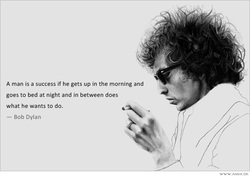 Humor is something I never expected from the WPA Listserv. Going into this assignment I fully expected a few dull posts about composition studies and possibly the occasional heated argument that may get out of hand enough to entertain me slightly. I am happy to say that I may have found a golden nugget of comedy today. I am by no means a reader of the Washington Post, nor am I a reader of newspapers/news outlets in general. I tend to stay away from new stories, but after reading about The Washington Post's article I may change that. Long story short, they challenged readers to take a word, change, remove or add a single letter and give that word a brand new definition. They also provided a secondary and, in my opinion, a much harder challenge of creating a new definition for an existing word. What followed was easily some of the best usage of pun-humor I have ever seen. (Aren't you glad I didn't say punny?) Here is a list of my personal favorite from the invented words: (Disclaimer: All implied opinions are my own and do not reflect anyone else who may post to this blog.)  Ignoranus: A person who's both stupid and an asshole. 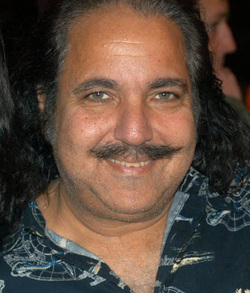 Osteopornosis: A degenerate disease.  Sarchasm: The gulf between the author of sarcastic wit and the person who doesn't get it. And now for the invented definitions:  Coffee, n. The person upon whom one coughs. 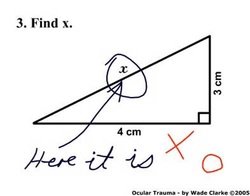 Testicle, n. A humorous question on an exam.  Willy-nilly, adj. Impotent. I am impressed by the low brow humor that made its way to the WPA Listserv. As a logophile I truly appreciated this.
Here is a list of all the winners for the invented words: § Cashtration (n.): The act of buying a house, which renders the subject financially impotent for an indefinite period of time. § Ignoranus: A person who's both stupid and an asshole. § Intaxication: Euphoria at getting a tax refund, which lasts until you realize it was your money to start with. § Reintarnation: Coming back to life as a hillbilly. § Bozone (n.): The substance surrounding stupid people that stops bright ideas from penetrating. The bozone layer, unfortunately, shows little sign of breaking down in the near future. § Foreploy: Any misrepresentation about yourself for the purpose of getting laid. § Giraffiti: Vandalism spray-painted very, very high. § Sarchasm: The gulf between the author of sarcastic wit and the person who doesn't get it. § Inoculatte: To take coffee intravenously when you are running late. § Osteopornosis: A degenerate disease. (This one got extra credit.) § Karmageddon: It's like, when everybody is sending off all these really bad vibes, right? And then, like, the Earth explodes and it's like, a serious bummer. § Decafalon (n): The grueling event of getting through the day consuming only things that are good for you. § Glibido: All talk and no action. § Dopeler Effect: The tendency of stupid ideas to seem smarter when they come at you rapidly. § Arachnoleptic Fit (n.): The frantic dance performed just after you've accidentally walked through a spider web. § Beelzebug (n.): Satan in the form of a mosquito, that gets into your bedroom at three in the morning and cannot be cast out. § Caterpallor (n.): The color you turn after finding half a worm in the fruit you're eating. And the winners for the invented definitions: § Coffee, n. The person upon whom one coughs. § Flabbergasted, adj. Appalled by discovering how much weight one has gained. § Abdicate v. To give up all hope of ever having a flat stomach. § Esplanade, v. To attempt an explanation while drunk. § Willy-nilly, adj. Impotent. § Negligent, adj. Absent-mindedly answering the door when wearing only a nightgown. § Lymph, v. To walk with a lisp. § Gargoyle, n. Olive-flavored mouthwash. § Flatulence, n. Emergency vehicle that picks up someone who has been run over by a steamroller. § Balderdash, n. A rapidly receding hairline. § Testicle, n. A humorous question on an exam. § Rectitude, n. The formal, dignified bearing adopted by proctologists. § Pokemon, n. A Rastafarian proctologist. § Oyster, n. A person who sprinkles his conversation with Yiddishisms. § Frisbeetarianism, n. The belief that, after death, the soul flies up onto the roof and gets stuck there. § Circumvent n. An opening in the front of boxer shorts worn by Jewish men --Evan 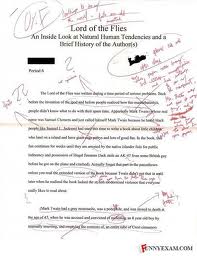
We've all experienced getting a paper back that has an A, B, C, D grade with no comments on it. Well why not, I didn't just stress over this 8-10 page paper for you to not respond to what I just wrote my heart out for your class. A majority of us may find it annoying. But then you have some teachers who conversate with everything you have to say- agree with your statements, commence you for your effort, compliment on your style. This positive reinforcement is what drives students to feel good about themselves and also allows the teacher to let students know that WHAT THEY HAVE TO SAY MATTERS. The WPA lister this weekend had an overwhelming response to the post: How can I (the teacher) cut back on responding to student writing. This sunday post had about 10 replies by Monday morning. Mostly, teachers were arguing, "DON'T!" A teacher isn't really teaching or involving themselves until they're writing with their students. I see it as this, you compliment a girl on the color she's wearing and I'm sure that color will be entering her wardrobe much more than before. Same goes for a teacher commenting on student writing, if the teacher has positive insights to add to your paper, it's a huge positive reinforcement to where the student stands in the class. I feel its even more valuable than a letter grade. Teacher's are letting you know where you stand in your writing by simply having a conversation with you. It also is nice to know that all those hours you spent writing that paper at least has something to show for rather than a simple "you got an A." OR Are some teachers afraid that their excessive comments of greatness will then lead the student to slack off and not try as hard? One of the comments on the list says that students will become too confident with the teacher's feedback. My thoughts on that attitude seems a little like this We ALL need positive reinforcement in our lives. And if we're paying massive amounts of money to enroll in college courses then what is the risk of writing "too much" on a college student's paper. I want something to show for it, I think we all do.
Megan Nehiley |

Blog493This blog is a reactionary overview of the daily posts to the Writing Program Administrator's listserv. One day; one blogger; lots of reactions. Archives
May 2014
Categories |
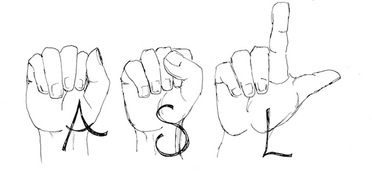

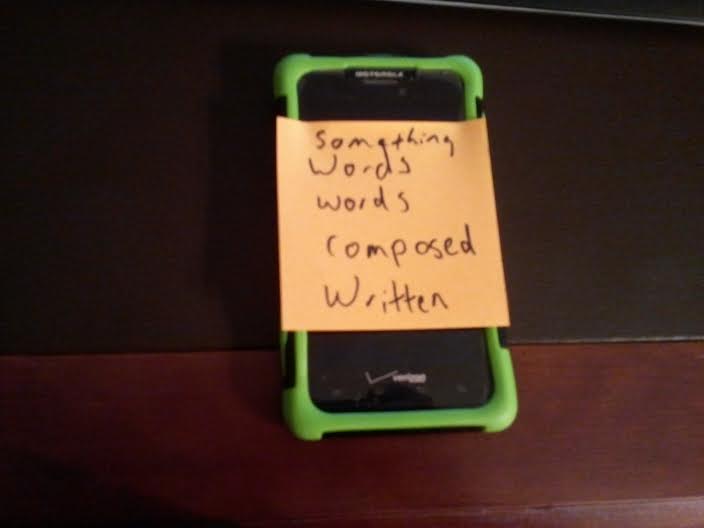


 RSS Feed
RSS Feed